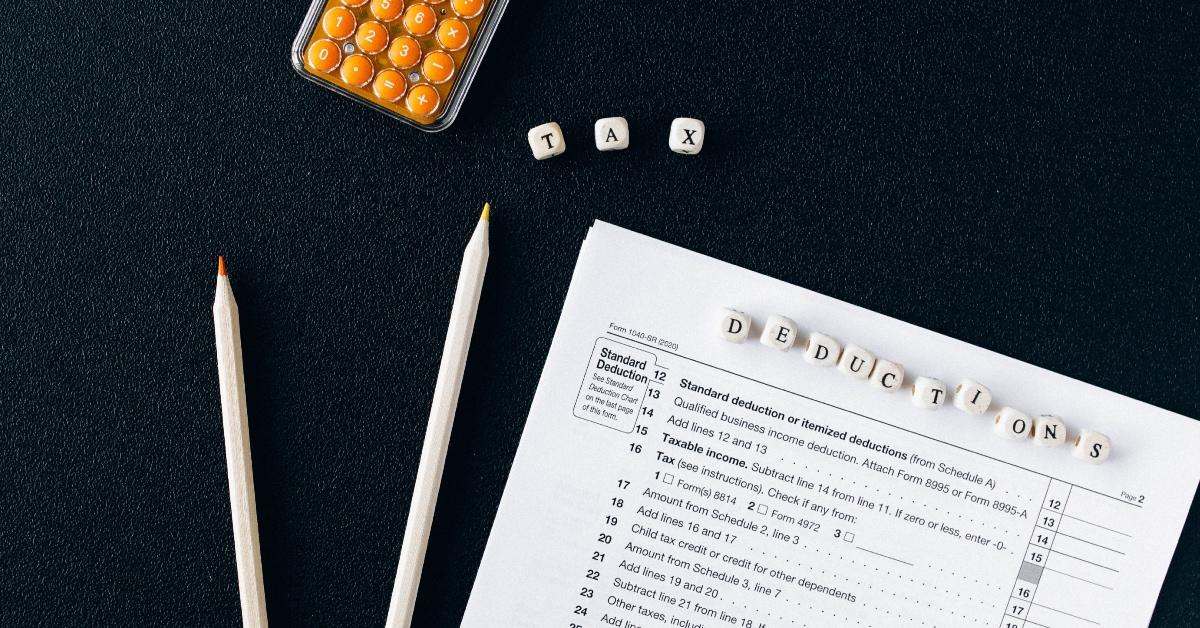You May Be Able to Deduct Your Property Taxes on This Year’s Tax Return
If you own personal property or real estate in the U.S., there’s a good chance you pay taxes on it each year. So, are property taxes deductible?
Jan. 27 2023, Published 10:54 a.m. ET

If you own personal property or real estate in the U.S., there’s a good chance you pay taxes on it each year. Generally, the state and city you live in will determine what your property tax rate is and when it will be assessed. While your location will play a large role in determining whether you have high or low property taxes, taxes are levied on the value of your property. So, are property taxes deductible?
A tax deductible is an expense you can claim on your taxes to reduce your taxable income. Deductions not only help offset your tax liabilities but sometimes result in taxpayers receiving a tax refund. If you paid property taxes last year, here’s everything you need to know about deducting them on your return this year.
Are property taxes deductible?

Most homeowners are entitled to deduct the annual property tax they paid to the state, local government, or municipal corporation. This includes the tax you paid on your primary residence, a second home, or on any investment properties you have.
The catch, however, is that you must be willing to itemize your return. This means you will need to list out every deductible expense as opposed to taking the standard deduction, which we’ll get more into down below.
The other conditions that must be met in order to deduct your property taxes are as follows:
- The property taxes must have been imposed on you by a government entity (local, state, or federal).
- The taxes must be levied on the value of your property.
- You must have paid the tax in order to deduct it. While this might seem obvious, some homeowners will try and deduct their property taxes without having paid them first.

A person deducing their property taxes on their return. The property tax form is included in the image.
How do property tax deductions work?
If you paid property tax, you can deduct up to $10,000 per person or $5,000 if you file your return married filing separately. To claim the deduction, you’ll need to include the amount on Schedule A of Form 1040, which is needed to itemize deductions.
Now, you should be aware that you are given the option to itemize deductions or take the standard deduction, which is $12,950 for 2022 and $13,850 for 2023. The standard deduction is a fixed amount and is generally better to take if it's more than the sum of all your itemized deductions.
What types of property taxes are deductible?
If you paid tax on personal property, such as a boat or vehicle, or real estate property taxes on a home or second house, you can deduct these on your taxes. While most tax preparation companies will walk you through the items you can and can't deduct, if you aren’t sure, it’s best to seek help from a reputable tax preparer.
What property taxes and fees can't be deducted on taxes?
There are some taxes and property fees that you can't deduct on Schedule A, as per IRS guidelines. These include:
- Homeowners association fees
- Estate and inheritance taxes
- The service charges you incurred for water, sewer, or trash collection
When are property taxes due?
States and local governments determine when and how much a person will have to pay in property taxes. Each person is required to pay their share of taxes based on their property’s assessment value. If the assessment values change, their property taxes may either increase, decrease, or stay the same.

Did property taxes go up in 2023?
Property taxes are rising in 2023 for individuals in certain parts of the U.S. In December 2022, WBAL TV reported that the property value in Mayland increased by 20.6 percent over the last three years. Because the 2023 reassessment of some Maryland homes revealed property values had risen, homeowners can expect to see higher property taxes.
